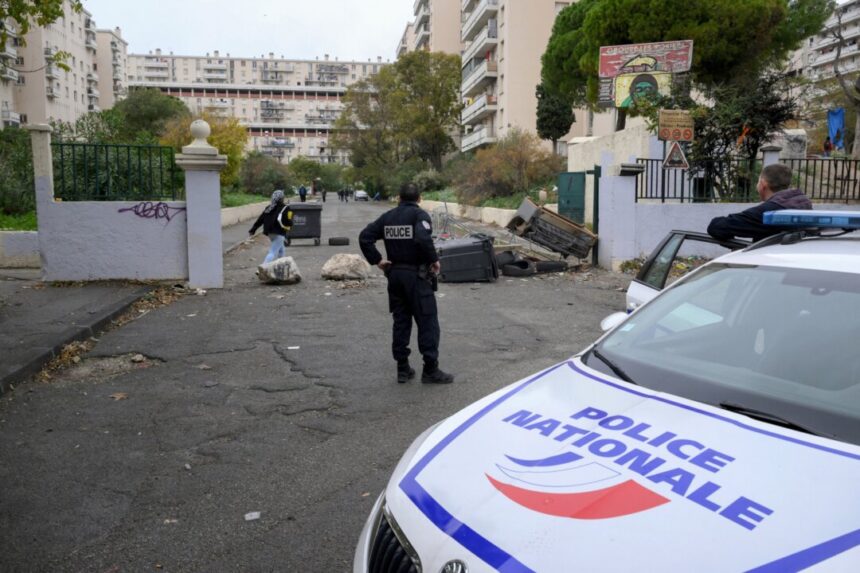French gangs are creating semi-autonomous ‘narco-enclaves’ in quiet towns, emboldened by a decreased police presence, according to a veteran French police commander. The recent deadly shootout in Poitiers, a once-peaceful town in France, has shocked the nation. This incident is just one example of a wave of drug-related crimes that have turned cities like Poitiers, Rennes, and Marseille into battlegrounds. French Interior Minister Bruno Retailleau has warned that the emergence of these “narco-enclaves” poses a serious threat to the country.
Jean-Pierre Colombies, a former police commander with extensive experience in criminal and narcotics investigations, highlighted the diminishing police presence in neighborhoods, allowing gangs to thrive and expand their influence. Retailleau has compared the situation to the control drug cartels have in Mexico and emphasized the urgent need for action to prevent the formation of gang-controlled territories within France.
Colombies pointed out that the decline in law enforcement infrastructure began during Nicolas Sarkozy’s presidency, leading to a reduction in police staffing and weakening of the police institution. French senators have also expressed concern about the flourishing narcotics industry in France, warning that drug trafficking poses a significant threat to national interests.
The report by the Senate commission of inquiry highlighted the widespread availability of narcotics, including the hardest drugs, across the country through various distribution channels. The intensification of drug trafficking in rural areas and mid-sized cities has been accompanied by a surge in violence, resembling actual warfare at times.
Colombies described these criminal organizations as highly organized entities with strict hierarchies and systems of justice. Certain communities, particularly immigrant populations, are forming self-reliant groups that prioritize their own interests over those of the state. The sense of community has been lost in France, but immigrant communities have maintained strong ties to their own groups.
Defending cultural or sociological interests can sometimes evolve into defending criminal interests,” he said.
“When the state fails to regulate and enforce law and order, communities will take matters into their own hands and defend themselves,” he added.
Colombies also highlighted the DZ Mafia, a criminal organization from Marseille (Bouches-du-Rhône) that has extended its reach throughout France, especially in drug trafficking.
He pointed out that these gangs have established their own system of governance, and involvement in the drug trade can provide a way for young men to advance socially.
‘Ultra-violence’
Bruno Retailleau and other politicians have called for substantial structural changes to tackle the issue, but France is facing even more severe budget cuts, with 60 billion Euros ($65.68 billion) scheduled for reduction by 2025.
Colombies described the situation as becoming “Mexicanized,” where “the streets are controlled by thugs, creating a complete social and political system.”
He emphasized that France is not yet a “narco-state.”
However, he stressed that addressing the issue requires substantial investment in resources to prevent gangs from further escalating their activities.
He suggested increasing recruitment and training of police officers, expanding prison capacity, and establishing specialized detention facilities for criminals, similar to measures implemented by Italy in combating the mafia.
To prevent such a scenario, Colombies cautioned that “it demands a great deal of courage, as sending armed police against traffickers may result in casualties, necessitating unwavering support for law enforcement agencies and the ability to confront extreme violence.”





